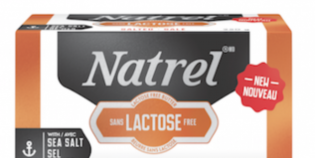Nestlé Waters Canada has launched a new earned media campaign that puts sugary drinks in the hot seat.
The company issued a press release with the bold headline, “Challenges with Sugared Beverages Being Ignored,” which outlined Canadians’ “alarming” sugar intake and contained highlights from a new survey.
The PR initiative is a continuation of the company’s “healthy hydration” earned media program, which has been running for five years. “I think that earned media gets into places where paid media doesn’t,” said John Challinor, director of corporate affairs at Nestlé Waters Canada. “It’s less costly and it allows you to have a more in-depth insightful conversation with consumers. And that’s why we historically have gone this route.”
For 2014, the company commissioned an Ipsos Reid survey of Canadian moms. The survey found that moms consume between three to four soft drinks per week and 39% said they are not looking to reduce their intake of these drinks at all. Just two in 10 moms correctly identified that the average soft drink has 10 teaspoons of sugar.
“We want to understand where consumers are today in terms of their beverage choices,” said Challinor. “As we saw with the survey results, there is an opportunity for Canadians to live healthier lives, to consume more non-sweetened beverages, be more active and eat better.”
As part of the campaign, Sherry Torkos, pharmacist and author of The Canadian Encyclopedia of Natural Medicine, is speaking to the media about the survey results and offering tips on healthy hydration. Torkos has worked with Nestlé Waters Canada since 2009.
“For us, [having a spokesperson] raises the issue in a constructive way that helps people make better choices,” said Challinor.
The initiative also includes a challenge to Canadians to take the new “Live Healthy. Live Bubbly. 7 Day Challenge,” which encourages people to swap one sugared beverage with Nestlé Pure Life Sparkling Spring Water.
The key target of the campaign is mothers in their 30s. “They are kind of the chief health officer of the family; they’re the ones who tend to take responsibility for their family’s heath,” said Challinor. “They are most interested in this kind of a discussion and view the material as being of most value.”










